Abby Rosmarin's Blog
June 6, 2023
Where Did All The Blogs Go?
Hey everyone!
As you may have noticed, the blog posts stop in 2021. But that is not to say I stopped writing blog posts–simply that I have now been writing exclusively over at my Patreon.
I know writing behind a paywall is frustrating, but this is how I see it: 1) I still create a lot of content for free over at my TikTok, and there are still about 6 years worth of essays to read on this site.
And 2) Anyone who writes can tell you how little money there is in writing. We currently have a writer’s strike going on because poor compensation is just that prevalent. I love what I do, but Chase doesn’t accept good karma for my bills.
(That’s the credit card company, not some random dude.)
My Patreon is a way I can balance what I do with paying the bills, and one way I give thanks to my supporters are my essays–along with behind the scenes footage, extra content, bloopers, trauma-informed yoga videos, and a lot more (depending on the tier).
If you have enjoyed my blog posts, but a Patreon pledge is beyond your threshold, that is perfectly okay. I appreciate that you took the time to read what I had to say. But, if you’re curious what’s behind that velvet curtain, I’ll see you over on my “patronage platform”.
And also, keep an eye out: you might be seeing my newest book in a store near you, hopefully sooner rather than later. But more on that, well, later.
Much love,
Abby
December 10, 2021
Consent
Trigger Warning Ahead: Discussions of Assault
—
“Ay Vamos” starts playing and my chest seizes.
It’s the kind of visceral response that the wrong song at the wrong time can only trigger.
Songs are time capsules with melody and I’m instantly transported back in the end of 2014. The eve of things. The tide pulling back. The tornado sirens to what 2015 was going to bring.
“I hate this time of year,” I mumble to myself. I try to bring myself back — back into my body, back to the present moment. But my breath is shallow. I feel like there’s a vice grip on my chest. All of my training abandons me when it’s my turn to be the patient.
—
Eleven months in to EMDR therapy, and my therapist feels we are ready to switch tracks. Work less on individual memories and more on the parts that make up me — my protector parts, the younger versions of me, the parts that are vulnerable and scared and carry unfathomable burdens.
But we only get a few sessions in before a series of memories seem to keep popping up, making cameo appearances in ways I wasn’t expecting. A ground zero that I had been deliberately driving past.
The first time I roll my eyes and say, “basically assaulted,” my therapist gently recommends that we switch gears for a moment and to work with these memories instead.
And I agree, and already I can feel the tide starting to pull back. The tornado warning has started to blare. I am on the eve of something.
—
The memories span, but we start with the one that happened at the beginning of 2015. As everything was going wrong.
“How true does the phrase: ‘I did not deserve what happened,’ feel?”
“You know, intellectually it feels true, but there’s something that keeps pushing back.”
“What is that part of you trying to say, with this pushback?”
“…that I had kept coming back, kept asking him when I could come by. That he made me feel special. That it wasn’t assault if that was how I was willing to behave.”
“But what did you consent to?”
I can feel something starting to crack, like something that had been locked up is finally getting a chance to break free. Perhaps this is why I keep looking back on that time — not because of all that went wrong, but what had been left unfinished.
I kept looking back because the sheer injustice was still singing its siren song. Because I had taken away only part of the story, and the key to my healing was the missing details.
It was not about reckoning with the wreck so much as it was about how there were still parts of me that were buried under the debris — namely the sweet, timid girl who just wanted to help. Who thought she could trust the director, the good Christian family man, twelve years her senior.
—
I hate this time of year. Ever since my father collapsed, days after Thanksgiving, and the alcohol withdrawal from just a few days in the hospital created seizures so intense he spent two weeks in the ICU, this time has never been a messenger for good things.
If something truly, catastrophically bad is going to happen, it happens in the last two months of the year, as the darkness takes over the days and the air bites your lungs. I cannot remember a year since my father’s collapse where this wasn’t that case.
Something new seizes in my chest as I recall this. Yes, my father’s collapse, which signaled the final months of his life. The event that happened at the end of 2014.
And what happened the second you talked about this situation publicly? Who started upping the ante? Who started telling you to stick around after hours, after no one else was in the office?
—
There is a fight going on in my therapist’s office. One between the wiser side of me, the hurting parts of me, and my therapist.
“What did you consent to?”
(My wiser side is screaming: “You know she is right!”)
“I should’ve known that was what was going to happen next.”
“What did you consent to?”
“I had plenty of time to stop it.”
“What did you consent to?”
“But he made me feel special.”
“If a 17 year old had a 29 year old teacher who was grooming her, would you say it was her fault because he made her feel special?”
“What did you consent to?”
(My wiser side: “You know the answer! You know it!”)
—
I already knew this song and dance. What this side of me is trying to do by blaming me. There is protection in pointing out all the ways you probably deserved it — that maybe you even wanted it. And, if not that, here are all the ways you could have prevented it.
There is a false sense of protection because you are creating a false sense of control. Maybe something terrible happened, but that was on you. How scary it becomes, to lose that. To realize you deserved better. That you were a victim. That you didn’t stand a fucking chance.
—
“But I kept coming back.”
“He spent six months grooming you. He was strategic in every thing he did. You were trauma bonded by then.”
“But I kept vying for his attention.”
“Would you blame a victim of cult abuse because they were vying for the leader’s attention?”
“No.”
“All the women who came before. Those who came after. The college student who filed a harassment complaint the same time all of this was happening. Why are you the only one who deserved what happened?”
“…I don’t know.”
“Now: what did you consent to?”
—
The end of 2021 brought Taylor Swift’s 10-minute version of “All Too Well”, as well as the emotional injustice done to her in 2012. Conversations about how this song could never have been released then, a decade ago. Given how the world had viewed her — viewed women, especially women in nuanced situations — she would’ve been dragged. She would’ve been seen as crazy.
“You tell anyone and I’ll stop at nothing until everyone thinks you’re crazy…”
And I kept quiet. Even when friends asked. Even when those who knew his behavioral patterns intervened. I was petrified. I knew all it would take is one revealed email where I eagerly asked to come by. One eye-witness account of me sitting in the chair by his desk like an obedient lap dog. The narrative of the crazy girl would win out. And the only person who would feel the consequences was the one who had been dealing with them all along.
2015 wasn’t that different from 2012. Even 2016, even with the Me Too movement. Perhaps, right now, in 2021, this is truly the first time there has been a tone shift, that a woman could step forward with her story and not be immediately scrutinized, immediately invalidated because of any detail that didn’t seem cut and dry.
Perhaps now is the first time reckoning can come in the form of a 14-minute music video and a red scarf and holding men accountable.
—
“If it was consensual, why would he have to apologize?”
“I don’t know.”
“If it was consensual, why did he threaten you into silence?”
“Because an affair would’ve ruined his marriage?”
“Do you think normal adulterers threaten their mistresses?”
“Maybe.”
“What did you consent to?”
—
This year’s darkness has a different flavor to it. It is one that feels less like suffocating night and more a quiet place for seeds to take root.
Under the snow lays groundwork for something bigger. Like tulip bulbs planted just before the first frost. I am watching the groundwork being laid out. Beautiful things are forming, the same way a caterpillar becomes a butterfly.
And just like the process of metamorphosis, right now it feels like the things have to be completely destroyed and melted down.
—
“What did you consent to?”
“…”
(Wise me: “SAY IT.”)
“What did you consent to?”
(Wise me: “YOU KNOW THE ANSWER.”)
“Did you consent to that?”
“…no.”
And with that, the primal wail of someone who has just received the most devastating news of their life. The kind of sorrow that has no real descriptor. The cry of suffering of someone who will spend the evening sobbing in her shower — not unlike in the aftermath of that very event we had been working on in therapy. The only difference is I don’t feel numb between my legs. I just feel excruciating pain all over.
—
I keep likening EMDR therapy to breaking a bone in order to reset it, but perhaps this has been more like popping a dislocated shoulder back in place.
In order to fix a dislocated shoulder, the movement must be swift and violent. Anything less and you risk creating more damage. And the initial yank will be monstrous. But once the shoulder is back in place, then you can attend to the muscles and make sure they heal properly around it.
The shoulder is finally back in its socket, after years of being dislocated. And the muscles can finally — finally — start to heal.
I had spent years willing my shoulder muscles to stop re-injuring themselves. Years where I assumed it was normal for one arm to be lower than the other, and that certain movements were basically impossible.
Everything shifts into focus after the undeniable pain of something popping back into its proper place.
—
One of the unfortunate side effects of realizing the full extent of things is realizing the true role other people have played, and realizing the only way forward is to cut that cord, that even the echoes of retraumatizing must be silenced off.
And in that cutting of the cord, I am, unfortunately, retraumatized anyway. Remembering all these trauma bonds by proxy, how horrifically messed up certain situations were. Remember holding space for the very people who enabled him. Telling myself that they didn’t know all the details does not change the fact that these people know who he is, knew what hell he had put me through, and knew I wasn’t the only one. There is no yarn I can spin to change the deep betrayal of it all.
There is a song with the lyrics: “I’ve been losing friends and finding peace. Honestly that sounds like a fair trade to me.” Perhaps, in the light of healing, that trade favors the one finding peace.
I am finally making off like a bandit, after years of feeling stolen from.
—
I hate this time of year, for the simple fact that it has been the battle ground of so many heavy hitting things. That the glare of the Christmas lights only heightened how dark its surroundings are.
And this is a new heavy hit. One nearly seven years in the making. But this year, it’s different. I don’t have that same dread.
I am watching the person I know that I can be show up more and more. I am watching my educational path pave itself out more and more concretely. I am watching my dreams and plans slowly start to shift in place. It’s been a mix of hard work and luck and unfathomable support.
This is the groundwork. These are the tulips ready to bloom. This is the butterfly ready to burst from its chrysalis.
—
I am preparing to go decorate my best friend’s Christmas tree, and I feel a heaviness in my chest.
“Where were you, last year, when you went to her house, and decorated the Christmas tree?” a part of me asks. “What was happening, then? What specific details can you recall? What specific details of the present day can you admit? Do you see the parallels?”
I do. And the fact that I do only creates bigger heaviness in the heart. But the fact that the script is different this time lightens things. I remember how I was at the end of 2020. I remember the patterns I played out, just like it had for years at that point. But I also remember who I am today. The girl — the woman — who has kicked and clawed and scratched her way to where she is now. Who embraces exactly the vibrant force she is, and all that she brings to the table. The girl who once crumbled is the woman who stands firm. The pattern has been broken, even if it cracked my heart a bit in the process.
If nothing else, it has been a litmus test for this incredible woman. This confident, self-reassuring, brave, amazing woman, who has nothing but love for all the younger parts of her. The parts that didn’t stand a chance. The parts that didn’t get a chance. Because she is their chance. She is an incredible, vivacious person, who continues to love both who she is and what she is becoming.
And no one gets access to her without her consent.
November 7, 2021
Alltrue: a subscription box on a mission
I recently got a chance to review a box from Alltrue, and I was really pleased with both the box and the company’s mission.
Firstly, Alltrue is a quarterly subscription box with an eye towards sustainable, ethical, and altruistic practices. It aims to foster women’s empowerment, support charitable brands, and go about international trade in a more egalitarian way.
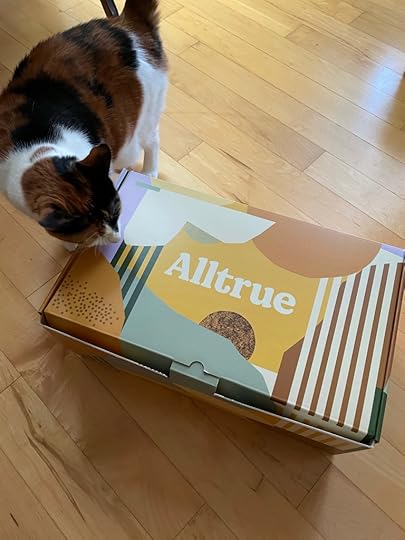
Firstly, the Alltrue box itself is beautiful. My cat Artemis agrees!
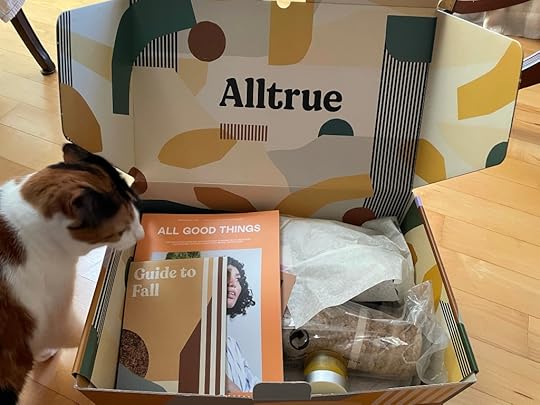
Inside, I was greeted with some incredible treats — which I had to get to before Artemis made herself at home in the box!

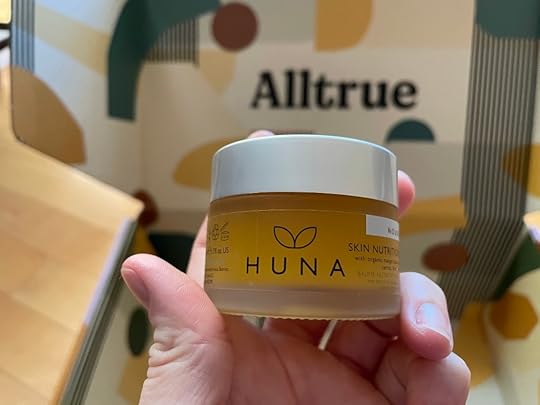
The first that caught my eye was the skin balm. I’ve been trying to be better about a skincare routine and this seems like the perfect item for the job.
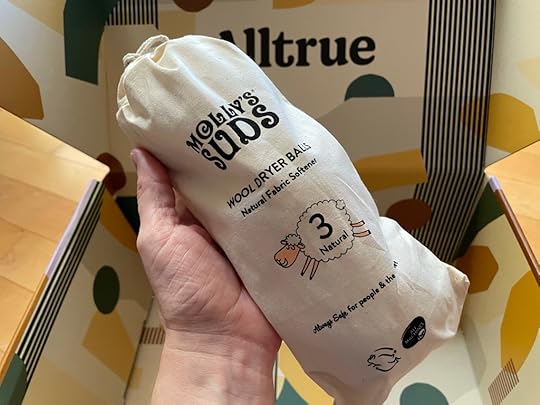
As someone who loves woolen balls over drier sheets, these were a wonderful sight to see.
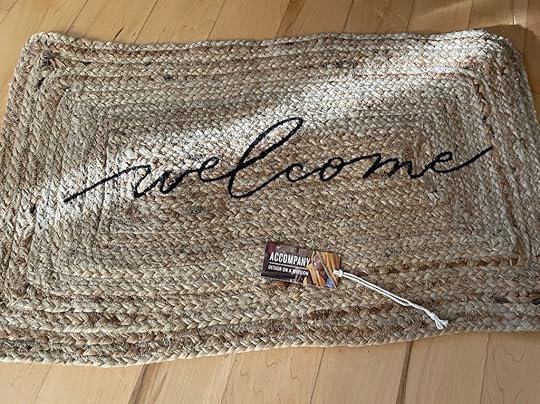
I adored the handmade welcome mat, from a company that is doing its part to support artists and fair trade.
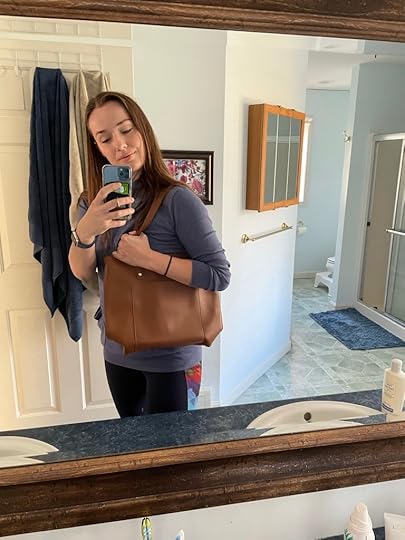
The purse made from vegan leather was a very pleasant surprise, and I can’t wait to use this in my day-to-day life.
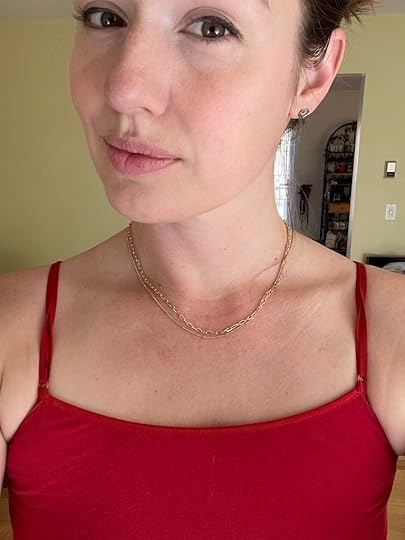
The necklaces from Each were delicate and beautiful and I decided to pair them up and where them both at the same time.
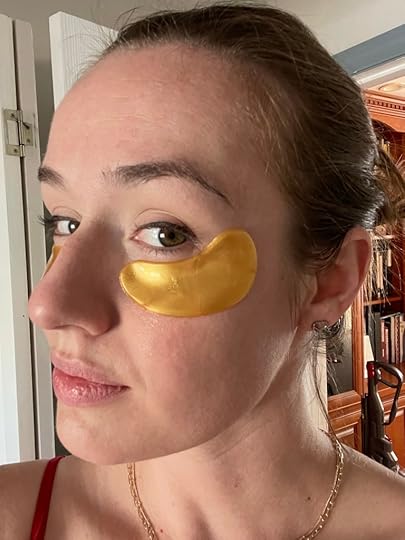
And lastly, the seaweed eye treatments from MintBiology were indulgent and my skin felt amazing afterwards.
Overall, my review is nothing but glowing. I not only appreciate Alltrue’s mission, but the items in the box were beautiful, of high quality, and things I would (and am) using. I’m very happy I got a chance to try out Alltrue, and if you’re curious about the company, you can visit their website at alltrue.com
*note: this is a review post that I did in exchange for a sample of the company’s product. I did not receive any monetary incentive to write a positive review.
September 24, 2021
Interlude
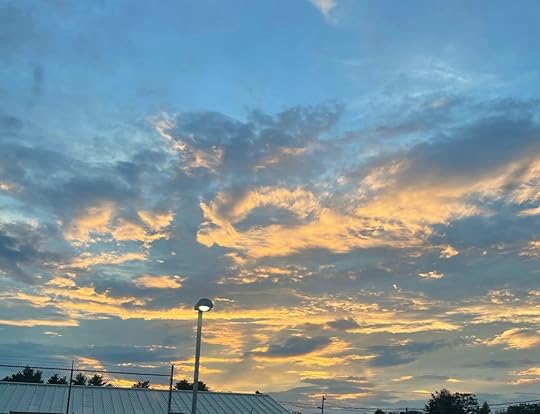
“I feel like I’m in the interlude between acts in a play.”
I say that to multiple friends, some who are going through similar experiences, and some who are not.
“I’m in the interlude between acts,” I say. “And I know the second act is going to look vastly different from the first. But there’s nothing I can do in the meanwhile.”
Perhaps it’s the writer in me who wants to see things in term of stories. Plot lines, story arcs, character development. This isn’t just a set of wrenches in the machinery, or a sign things are about to get vastly different. No, this is a complex and beautiful play. Musical theatre, where characters belt out in harmony all the struggles that have been thrown their way. And now we’ve hit the crescendo, and the curtains have been drawn, and the lights are on.
This is intermission. The stage hands are working busily behind the scenes, but all you have is a slight ringing in your ears and the echos from the applause as everyone temporarily files out.
—
I try to remember the importance of interludes. The intermission is not a disruption of the theatre experience but a vital part of it. This is your chance to get up, to stretch your legs. To visit the concession stand, the restroom, to check your phone and chat and reorient yourself to reality.
To be living in between acts is not to be living in suspended animation but to be in a spot of rest. It is a chance to reorient yourself, see what you need, now that the curtain has been drawn, and have the time and space to navigate that. There’s no need to rush the experience; the second act will happen when it does. Scurrying back to your seat won’t make it arrive sooner.
But this is where the analogy breaks down. People don’t go into intermission trying to predict what the second act will look like, based on clues in the lobby — as they wait in line for drinks, for the restroom, to buy merchandise and souvenirs. How many people gauge their excitement or fear for the second act based on the colors of the carpet, the songs played through the speakers, the kind of people milling about?
Interludes do not typically have a heightened hypervigilance. Interludes typically don’t make an audience member feel like, not only are they in control of what the second act will look like, but it’s on them to accurately predict it and set up the ground work.
And maybe — maybe — this is where the analogy comes back. Because the idea of doing that in an actual theatre sounds like the ravings of a mad person. And trying to decipher those context clues will probably do as exactly as much to change the setting, the cast, the script, of the second act, as it would for an actual play.
Perhaps this really is the perfect analogy. And there is serenity in surrendering to the powerlessness the audience member has.
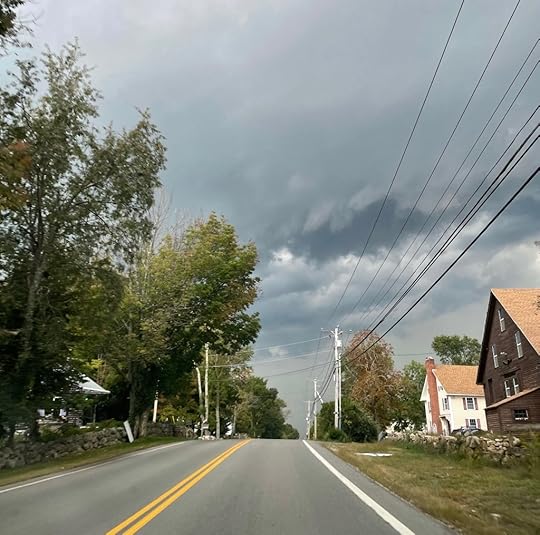
—
I’m driving home one night, and Ingrid Michaelson’s “Wonderful Unknown” starts to play.
Here we go, dancing on our own, inside this house that we have never known
I’ve been vacillating wildly between despair and hope, between action and inaction, between plans and fantasies and a flatline of emotions. I don’t know what I can be excited for — not really — because there are few things in this world as heartwrenching as dashed hopes. Because I revert to a small, crushed child again when all that excitement is met with cold reality.
The one your father gave, when they thought the world won’t end.
But I can’t help but be excited. And hope. And let my soul and my heart do what they’re going to do. I can’t help but imagine all the ways this second act is going to go. And think about all the different backgrounds and set designs and songs. Which roles will be reprised and which actors will be reprising them. To deny myself that sweet experience is truly more crushing than any dashed hope could be.
Oh, nothing lasts forever but the sound of love astounds me every time that it calls
Enjoy the present moment. I still reread the note I was given from my husband on my birthday, particularly the line about how he knows I want to throw myself into the future, in a world where I’ve already graduated and the dust has settled and this second act is well underway, but I might find that this interlude is going to be a very good experience for me.
And I try to remember that. Try to remember the simplicity of a life between acts. The gentle suspension. The anticipation and the nostalgia. Because, soon enough, the lights will flicker, I will have to return to my seat, and the room will go black as the curtain comes up.
Here we go, going it alone, into this dark and wonderful unknown. Let us go, let us go.
July 5, 2021
Hoy Tengo Ganas

I broke down crying on the North Cascade Highway.
The mountains had reduced me to a blubbering mess. One hand on the steering wheel, one to my mouth, sobbing persistent, overwhelming, beautiful tears.
“The world is such a beautiful place,” I say to myself, by myself. “And I am so grateful to get to be a part of it.”
I have one song on repeat — a Spanish power ballad by Alejandro Fernandez. “Hoy Tengo Ganas de Ti.” It crescendos in beat with the welling in my spirit.
Remove the context of the tears — remove the actual words I was saying — and one could’ve easily assumed I was in the grips of misery.
Perhaps it highlights the thin line between ecstasy & joy, and sorrow & pain. Not opposite sides of the spectrum or even opposite sides of the same coin. But twins you can only tell apart by their attire.
Both feelings can sweep your soul clean. It’s just we’ve been taught to only embrace one or the other.
Si, hoy tengo muchas ganas de ti.
—

—
The mountains don’t make my problems feel small but they do make my soul feel large.
I had scribbled that down the first time I saw Franconia Notch as an adult, during the worst summer of the worst year of my life. That excursion into the Pemi wilderness was the first semblance of peace I had felt in six months and the first taste of what I’d tap into if I could just lace up my boots.
Hoy tengo muchas ganas de esto.
This summer is a much different one than the summer of 2015. Or maybe it’s not — maybe it is also a twin with a different set of clothing. Maybe I’ve just grown to embrace all the things that are pure human experiences. The changes, the fears, the uncertainty. The hopes and happiness, and things I hold with cautious optimism.
The things that remind me where I’ve come from, the things that remind me where I’m going, and the things that remind me how far I’ve come — and where else I need to still go.
Who I was, back in 2015, is less like a twin and more like a distant cousin, someone I can intellectually understand is related to me, and if I squint I can see the resemblance. Perhaps this is what it looks like to sweep a soul clean, over and over and over again.
—

—
I needed to be here. In the Cascades. And to think, this was a last minute addition, something to do to fill out the last days in the Pacific Northwest.
But isn’t that the best part of the human experience? The things that sneak up on you and surprise you when you think you have it all planned out?
(Metaphors. Metaphors everywhere.)
I needed to be here. To be not just be reminded of the divine but be overwhelmed by it.
And I want that. Overwhelm me. Overfill my cup, even if it does reduce me to tears in one form or another, at one point or another. I don’t have time for the tepid.
I smirk as I hear a voice in the back of my head: wherever you’d been, that’s where you needed to have been.
Given how the last couples of years have been, that can be hard to believe. But I choose to believe that every shard of rock on this path has given whatever cuts were necessary — whether to point out weaknesses in my gait or to just remind me of the searing wonder of life.
And in the end, they were all pure human experiences. And it’s pure human folly to only regard the easier ones, to try to disregard what forcefully swept my soul clean (…once I let it).
Yes, this life is so beautiful. And I am so grateful to be a part of it.
Siempre, tengo ganas del mundo.
—

—
Not every spot in the Cascades hits so hard.
Some are simply to be strolled out to. The breeze, the river, the sunlight. The mountains, now partially covered in clouds. Where there is nothing to do but lean toward — lean in — and feel calm.
Sometimes it’s okay for things to just gently sweep over you.
The beautiful, the brutal, and the serenity the falls in between them. Different members of the same family.
March 5, 2021
Replacement
“Think of what your most pressing crisis was, right before the pandemic.”
I have to smirk. I remember this time, last year. The innocent juxtaposition, like the opening scenes of a disaster film. The world before the virus made landfall, when I was consumed with the creeping inevitability of a situation — the hope that things were going to improve chipping away and all I could feel was the pit in my stomach.
Right before the first lockdown — literally days — I was sobbing, consumed with this comparably adorable suffering. And like a flood rushing in, those moments feel like a quarrel on the beach before the tsunami hits.
How quaint it is, in retrospect.
—
When the pandemic made landfall in America, I had hit the ground running.
Within a day of the lockdown, I had set up my at-home studio, sales pitching to the point of begging clients to consider online classes. My to-do lists became equally hysterical, each day methodically mapped out with the precision of a helicopter parent.
I would make to-do lists that would stretch into the rest of the week.
I would listen to an entire audiobook in a day as I accomplished every single remaining home improvement project that had been waiting in the wings. I overhauled the land around my house, pulled out every single weed, started a fruit & vegetable garden. I painted the semi-finished basement and I installed anything that needed to be installed.
On two occasions, I would slice my thumb open with a box cutter, haphazardly bandage it up, and continue on.
“That needs stitches,” my husband warned, on both occasions, but I never went to urgent care. Both times, it eventually healed, even though I temporarily lost feeling in the tip of my thumb.
(There’s a metaphor here. There always is.)
It wasn’t until the Appalachian Mountain Club gave the go-ahead to hike again did I let up on all the household projects. I then shifted to some of the toughest, meanest, most dangerous hikes in the Whites, finishing the list by August.
I had hit the ground running, and ignored whenever I’d roll an ankle or scrape a knee. Literally and metaphorically.
Because that’s the thing about running away from things — all that matters is that you’ve put distance between yourself and the thing. Your wellbeing isn’t immediately important.
—

—
It’s been a year since the pandemic made landfall in America. A new normal has been established. Hearing CDC recommendations while grocery shopping has stopped feeling so jarring.
And I think — I think — I have slowed down.
There’s a lot I’m doing differently now. I’ve stepped back from a lot in my personal life — things I was doing to avoid the feeling of loss, to simply replace one focus with another.
(And it never worked out. When you are intent on replacing what you’ve lost, your focus isn’t where it needs to be and you can’t tell if the replacement is going to cause you injury.)
Trying to replace what I’ve lost has landed me in heartwrenching situations. And the fear of losing further kept me there. This has been the case since far before the pandemic.
(And as I continue to use this time to heal and build myself back up, I realize that, more than the betrayal of others, I struggle processing the self-betrayal that I did to stay where I was, to never risk loss by putting my line in the sand. More than their mistreatment of me is my mistreatment of myself for not extricating myself sooner.
Perhaps I cannot fully forgive them for what they did because I have not yet fully forgiven myself for letting it happen in the first place.)
—

—
I was hysterical when the pandemic hit because I could not bear to sit with loss. Loss of my career, of my way of life, of a sense of certainty. And I sliced my thumb twice in the process.
Perhaps this is more than just another metaphor I can suss out of the mundane. Perhaps it is indicative of a bigger issue: how many times have I stayed where I was because I was paralyzed by the idea of loss — of losing whatever small good the bad situation was giving me? How often I couldn’t stand creating negative, even if it will be a net positive.
(And how often the injuries it caused far surpassed a sliced thumb, how it severed more than some neural connections, how the numbing went far beyond just the tip of a thumb.)
But what a peculiar balance it becomes — to make sure this time of healing and building myself up isn’t yet another way to replace, to avoid that feeling of loss. But also, what a powerful thing it becomes, to sit with loss.
And then — if I am lucky — I can have both paths converge, where I have built myself up enough and learned not to chase replacements. I become someone who understands the power of goodbye sooner — who extricates herself before something slices through her again.
—

—
“If I can give you some more of ‘your husband’ knowledge,” says my husband when I tell him about what I’m writing. “You hold onto that little good because of how your childhood was. When you were younger, ‘a little good’ was all you got. So when you get into those situations, there’s resistance against removing yourself from the equation because — well, ‘a little good is as good as it gets’.”
It all can be traced back to its source in my upbringing. It always can. There are few things that put a person at a disadvantage quite like learning all the wrong lessons about love during your formative years.
A little bit of good; that’s as good as it gets. Something you unconsciously accept as fact if you don’t think you’re innately worthy of more — that, if you want an iota of better treatment, you better be willing to jump through hoops for it. And if it doesn’t happen, don’t risk what little good you got. You’ll never know when you’ll get it again.
—
I take a stroll through the city after my most recent therapy appointment, Taylor Swift’s “August” in my earbuds.
For me it was enough, to live for the hope of it all…
So many times I’ve stayed in holding patterns, living for the hope of it all, hoping that the hope could replace what had never really been enough. I can only hope that right now is enough; that sitting with loss, that feeling I’m desperate to replace with something else once more, can be enough.
That I can watch how 2021 unfolds, making peace with where my career is at, where the state of my spirit and my heart is at, that right now is about letting go and letting be.
Not running away; simply moving forward.
February 28, 2021
Anger

Within the first two punches on the heavy bag, I feel something well up within me.
“Oh, I’m apparently angry,” I say, with all the detached objectivity of a biologist studying their animals.
“Don’t lose your form over it,” my husband warns, the man who not only tells his Icarus when she’s flown too close to the sun, but also when she is the sun herself and her fire is burning explosively.
“I won’t,” I say, and I attempt to channel this feeling into the bag. Left hook, right hook, jab, straight. I get a twinge in my wrist when I hit the bag improperly.
—
Sometimes it feels like the harder emotions exist in the room over from me. I can hear their voices when they talk loudly but yet they’re still separate. All my work towards being more self-aware has simply made it so the walls are made of paper and it only takes a little effort to break down the barrier. But the effort still has to be there, and the wall still exists otherwise.
And sometimes it’s the emotion itself bursting through, and the only thing I can do is be grateful that I don’t have plaster debris all over my floor. Because I’ve been there before, and I know just how much of a mess it can create when the feelings break through thick walls like the Kool Aid Man.
—
Somewhere along the line, I learned to bury my rage. My conditioned responses became any of the other nervous system reactions — flight, freeze, fawn — but never, ever, fight.
I would then look back on those interactions and seethe with how I reacted — fury at myself for not unleashing fury at them; sometimes for not even realizing what was happening when it was happening. So caught up in the anxiety of the moment that I had fawned when I should’ve fought.
Sometimes, in just the span of an hour, I would throw my head back and wince at how softly I had treated someone who had just been callous to me.
The douchiest thing that has ever been said to me, was said to me, and THAT’S how I responded?
Sometimes I retcon my anger. I return to something that I had initially responded with people-pleasing or tears, and course correct — no, that was the douchiest thing someone has ever said to me, and now I will let you know how I should’ve responded. Let’s cross out the words from the first draft of this script, because here is the rewrite.
But sometimes I don’t. Sometimes that unborn rehashing lives under the surface, a mini rage at a wrong I didn’t get a chance to get right — or, at least, shine a light on. An anger that goes unheard is an anger that is amplified, and it doesn’t take much for it to bubble up, to break through those paper walls, and remind me of its presence.
—

—
I’ve been doing a thing, lately, in therapy — words that I’ve calmly said a million times over to other people become a catalyst for big, pendulous tears.
It makes sense. I pay against my deductible to have this safe space, that will be enough to click off at least one of the safety locks. But it still surprises me, to tap into this wellspring of emotion so easily.
“Anger is usually covering up another emotion,” my therapist has said — ironically, usually when I am crying.
I know what she means, but I can’t help but chuckle. Sorrow and anger seem to be comfortable bedfellows in my life. How deep can this sadness go, how much further is the depth of things, if I still have anger eventually covering for it?
—
Lyssa is the Greek Goddess of fury and madness. If I ever add on to my pantheon of animals, one of them will be named Lyssa.
Of course there is a goddess dedicated to anger. Of course. But how curious that the ancient Greeks lump it in with madness. Just like “to be mad” and “to be mad” are two separate statements. Because anger can make you feel like you’ve gone crazy, especially in a culture that tries to invalidate it at every turn. Then it makes you wonder what came first — the madness, or the madness.
And sometimes I have to remind myself that I have not gone crazy. I’m just furious.
—
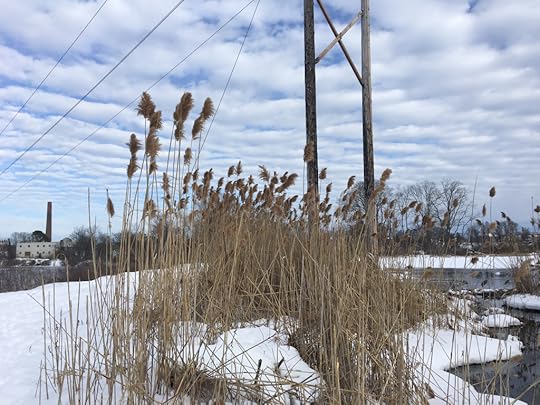
—
I always come back to a quote from The Queen’s Gambit — “You’ll have your time in the sun, but for how long? You’ve got so much anger in you.”
And I think about another quote, one that says the part of you that’s angry is the part that loves you so much that it is incensed that something like that would ever happen to you, that someone would ever treat you that way. That part of you loves you so much that it wants to protect you from any more hurt or pain.
I can’t think on that for too long without tapping in that wellspring of emotions. There’s a part of me that’s willing to go to war for me, to defend the parts that are delicate and easily bruised — like a big sister shouting to the bullies, “Give my baby sister her doll back or I’ll punch you!” It’s beautiful, in a way.
The anger is a hard thing to reckon with. I know so much of it is anger over the anger that couldn’t be expressed and validated — like a fire somehow burning hotter because it didn’t have enough air and kindling.
But I know there has to be a balance — that it can’t become like a firefighter kicking down the door and the rush of fresh air amplifying the blaze. Perhaps that’s the million dollar question — what part of the fire should be contained, what part should be maintained, and what part should be stoked to burn up what needs to be burned.
—
“Anger is usually covering up another emotion.”
Yes, it is. Almost always. And I find great insight when I dive into what that big sister is trying to protect. But I’ve also learned that the psychology world is quick to dismiss that anger, dismiss why it’s there in the first place. It forgets the bullies and focuses only on the baby sister.
And I think a balance has to be struck here, too. Yes, to recognize where the anger is coming from, what pain or fear it’s potentially masking — to understand the side of you that loves you so much that it just wants to keep you safe. But to also let the fire do its nature, the same way forest fires in the right amount are key for the forest’s ability to flourish and even survive.
Because sometimes, you just need to be fucking angry.
February 26, 2021
Anger

Within the first two punches on the heavy bag, I feel something well up within me.
“Oh, I’m apparently angry,” I say, with all the detached objectivity of a biologist studying their animals.
“Don’t lose your form over it,” my husband warns, the man who not only tells his Icarus when she’s flown too close to the sun, but also when she is the sun herself and her fire is burning explosively.
“I won’t,” I say, and I attempt to channel this feeling into the bag. Left hook, right hook, jab, straight. I get a twinge in my wrist when I hit the bag improperly.
—
Sometimes it feels like the harder emotions exist in the room over from me. I can hear their voices when they talk loudly but yet they’re still separate. All my work towards being more self-aware has simply made it so the walls are made of paper and it only takes a little effort to break down the barrier. But the effort still has to be there, and the wall still exists otherwise.
And sometimes it’s the emotion itself bursting through, and the only thing I can do is be grateful that I don’t have plaster debris all over my floor. Because I’ve been there before, and I know just how much of a mess it can create when the feelings break through thick walls like the Kool Aid Man.
—
Somewhere along the line, I learned to bury my rage. My conditioned responses became any of the other nervous system reactions — flight, freeze, fawn — but never, ever, fight.
I would then look back on those interactions and seethe with how I reacted — fury at myself for not unleashing fury at them; sometimes for not even realizing what was happening when it was happening. So caught up in the anxiety of the moment that I had fawned when I should’ve fought.
Sometimes, in just the span of an hour, I would throw my head back and wince at how softly I had treated someone who had just been callous to me.
The douchiest thing that has ever been said to me, was said to me, and THAT’S how I responded?
Sometimes I retcon my anger. I return to something that I had initially responded with people-pleasing or tears, and course correct — no, that was the douchiest thing someone has ever said to me, and now I will let you know how I should’ve responded. Let’s cross out the words from the first draft of this script, because here is the rewrite.
But sometimes I don’t. Sometimes that unborn rehashing lives under the surface, a mini rage at a wrong I didn’t get a chance to get right — or, at least, shine a light on. An anger that goes unheard is an anger that is amplified, and it doesn’t take much for it to bubble up, to break through those paper walls, and remind me of its presence.
—

—
I’ve been doing a thing, lately, in therapy — words that I’ve calmly said a million times over to other people become a catalyst for big, pendulous tears.
It makes sense. I pay against my deductible to have this safe space, that will be enough to click off at least one of the safety locks. But it still surprises me, to tap into this wellspring of emotion so easily.
“Anger is usually covering up another emotion,” my therapist has said — ironically, usually when I am not crying.
I know what she means, but I can’t help but chuckle. Sorrow and anger seem to be comfortable bedfellows in my life. How deep can this sadness go, how much further is the depth of things, if I still have anger eventually covering for it?
—
Lyssa is the Greek Goddess of fury and madness. If I ever add on to my pantheon of animals, one of them will be named Lyssa.
Of course there is a goddess dedicated to anger. Of course. But how curious that the ancient Greeks lump it in with madness. Just like “to be mad” and “to be mad” are two separate statements. Because anger can make you feel like you’ve gone crazy, especially in a culture that tries to invalidate it at every turn. Then it makes you wonder what came first — the madness, or the madness.
And sometimes I have to remind myself that I have not gone crazy. I’m just furious.
—

—
I always come back to a quote from The Queen’s Gambit — “You’ll have your time in the sun, but for how long? You’ve got so much anger in you.”
And I think about another quote, one that says the part of you that’s angry is the part that loves you so much that it is incensed that something like that would ever happen to you, that someone would ever treat you that way. That part of you loves you so much that it wants to protect you from any more hurt or pain.
I can’t think on that for too long without tapping in that wellspring of emotions. There’s a part of me that’s willing to go to war for me, to defend the parts that are delicate and easily bruised — like a big sister shouting to the bullies, “Give my baby sister her doll back or I’ll punch you!” It’s beautiful, in a way.
The anger is a hard thing to reckon with. I know so much of it is anger over the anger that couldn’t be expressed and validated — like a fire somehow burning hotter because it didn’t have enough air and kindling.
But I know there has to be a balance — that it can’t become like a firefighter kicking down the door and the rush of fresh air amplifying the blaze. Perhaps that’s the million dollar question — what part of the fire should be contained, what part should be maintained, and what part should be stoked to burn up what needs to be burned.
—
“Anger is usually covering up another emotion.”
Yes, it is. Almost always. And I find great insight when I dive into what that big sister is trying to protect. But I’ve also learned that the psychology world is quick to dismiss that anger, dismiss why it’s there in the first place. It forgets the bullies and focuses only on the baby sister.
And I think a balance has to be struck here, too. Yes, to recognize where the anger is coming from, what pain or fear it’s potentially masking — to understand the side of you that loves you so much that it just wants to keep you safe. But to also let the fire do its nature, the same way forest fires in the right amount are key for the forest’s ability to flourish and even survive.
Because sometimes, you just need to be fucking angry.
February 12, 2021
Innate

“Out of all these memories, what do you think is the message from them that you want to undo?”
“That I’m not worthy of love,” I tell my therapist. We have moved from emotional mapping to figuring out the baseline for my EMDR.
“And what would you want to replace that message with?” she asks.
“Well, the opposite,” I reply. “That I’m worthy of love.” I pause, then add: “Actually, to be precise: That I am innately worthy of love. That it’s not about the dog and pony act I can do, or what I can bring to the table. That who I am, is enough.”
Every demon, every misguided thought pattern, every instance where I got myself into bad situations, every time I asked my husband for the millionth time, “are you mad at me?” over something as small as a mistimed sigh, can be traced back to that message: I am not innately worthy of love.
I can gussy myself up and lay out everything I bring to the table and know it’s enough to get people’s attention. (I mean, look at me: obviously I can.) But attention isn’t love, and I risk losing their interest the second I stop that dog and pony show.
It was about this time last year when I laid out for the public my fear that most are just fascinated with me — they are happy to view me as pretty, or smart, or entertaining, or generous, but when rubber met the road, there is no emotional investment. No devotion. Family bodes no security. Friends will betray you if the winds shift just right. Loved ones are fair-weathered, at best.
This time last year. I still remember where I was, the situations I found myself in, right as the pandemic made landfall in America. Right as the world started locking down. I still remember one person close to me, during what would be our last in-person meeting, asking if I was scared about COVID19. I remember knee-jerking a, “yes,” and promptly crying.
Now here I am. A year later. Within a month of the lockdown, that person wouldn’t be in my life anymore. I would yell at them for 45 minutes straight about every unaired grievance — and how this one pushed me past the edge. I wasn’t going to be mistreated anymore. Goodbyes sometimes have to be sharp enough to draw blood, I remember thinking.
I should’ve gone back to therapy then. But it would apparently take the Kafkaesque events of the remainder of 2020 for me to enter 2021 with one foot entering my new therapist’s office.
Sometimes it’s not just about rock bottom, but how bruised you get on your way there, before you finally do something about it.
—

—
“Do you feel this situation was worth the pain that it brought?” my husband would ask. Ever the one to tell his Icarus that she’s flying too close to the sun. And unfortunately his Icarus is selectively deaf.
“I mean… no. But yes,” I would reply. “I wouldn’t have realized the things I need to work on, otherwise. I wouldn’t have grown, otherwise. I wouldn’t have written what I did, otherwise.”
But by the same token, I’m tired of making lemonade out of lemons, of trading in pain for growth. I don’t want to anymore be the one adding sugar to situations that rendered me bitter in the first place. Perhaps it’s too much to ask for consistent sweetness that doesn’t have me wondering when the other shoe is gonna drop.
Yes, I had to get myself into those situations in order to realize I am someone who can get into those bad situations. But it feels too excruciatingly much like a tautology. It would be nicer, still, if I just weren’t someone who got themselves into those messes in the first place. If I already were someone who knew when to hold them, when to fold them, when to walk away, and when to run.
But then I wouldn’t be writing blog posts like this, now would I?
—

—
I used to measure my progress with how much disgust I felt for the previous incarnations of me. It was not unlike how I once viewed my writing: I could mark how much I had grown as a writer based on how viscerally ashamed I was of my old writing. I had perverted the Mohammad Ali quote about a man having the same views on the world at 50 that he did at 20, wasting 30 years of his life.
But, looking back (and the irony is not lost on me with that action), I realize it was all a thinly veiled way to justify hating the kind of person I was. The timid doormat. The somnambulist sleepwalking through life. The girl who said, “No worries!” while being very, very worried. The Icarus who kept getting herself into bad situations and then staying there — simultaneously falling to the Earth and hanging in suspension.
Why does there have to be this war between the past me and present me? Past me creating problems that future me will have to solve, and present me viewing past me with unadulterated contempt. Would it be that radical to view those younger versions with the same grace a therapist gives their clients? That gentle understanding that she did her best with what she had — that, without her, I wouldn’t be able to look back like this in the first place?
If my goal is to learn — genuinely grok — that I am innately lovable, perhaps I need to start with recognizing past me was just as deserving of it, too.
—
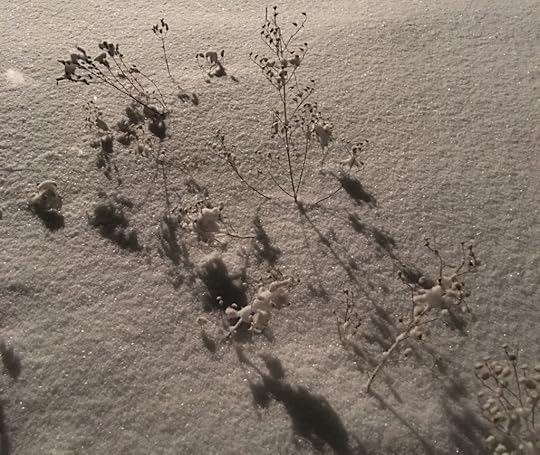
—
This time last year. A year in a pandemic world where time has lost much of its meaning. When someone arrogantly pointed out that the clock hands on my newest tattoo are in impossible places, I replied, “It fits the theme. I got this pocket watch is to symbolize our obsession with time, of keeping track of it, of micromanaging it.”
Which is true — part of my draw to the design for my tattoo was on the concept of time, and the delirious relationship we have with it. And once the pandemic hit, the idea of time losing meaning was tacked on. None of this was a lie. But it was a justification after the fact.
Perhaps not unlike many of the “lessons” I believed I needed to learn.
I am innately worthy of love. What a radical concept. I struggle believing those who have proven that to me, and latch on to those whose actions disprove it. I am resorting to a practice that is essentially hypnosis with clinical backing in order to rewire my current schema.
But, whatever it takes. I want to create someone that the version of me in 2022 can look back on and be happy. Maybe not proud — it might be too much to ask for that — but someone she can be fond of, like an old childhood pet or imaginary friend.
Who I was, it was enough.
January 30, 2021
Emotional Mapping
“Now this — this can be put in its box, we can put its lid on it,” says my therapist. “And we can leave it in the closet, and only return to it when we want to.”
I smile — although she can’t see it, through my mask — and continue my deep breaths. I don’t know what I’m chuckling about more: that the very grounding techniques she’s using on me are ones I use with my own clients, or the fact that she thinks I can so easily put a lid on it.
There is no lid to it, I say to myself, but she only hears me taking slow, diaphragmatic breaths.
We spent the majority of the session doing emotional mapping and I am in tatters because of it. I wasn’t expecting that. But when she had asked me to focus on the first tableau and what it makes me feel, I knew a wellspring of sorrow had been tapped. It took very little to link one memory with the next — my life has been on rerun for several years, so jumps from one thought to the next are more like small sidesteps. As we are winding down, she tells me to imagine these memories like something we can store in the closet, something we put in a box — and put the lid on. But there is no lid for it.
In essence, none of the things swimming in my mind do. The boxes have no lids and the closet has no door and I’m nothing more than a kid on a constant search for Christmas presents. But I don’t bring that up. There are some things I don’t even share with my therapist.
But I adore her. She’s exactly the kind of therapist I need. She has the right energy needed for someone like me. We vibe right — way better than my first therapist and I ever did. And she’s trauma-informed, and specializes in the very techniques I love learning about, and has created a plan outside of regular talk therapy. She doesn’t flinch when I lay everything about my life in front of her. And it’s not her fault that we have the same bag of tricks for the people in our care.
It’s tough being a trauma-informed instructor, turning to another trauma-informed instructor for help. In some ways, it’s like a magician watching another do identical tricks.
My breathing normalizes quickly enough. These techniques don’t lose their magic just because you know the trick. We exchange a few more words, schedule the next session, and I’m eventually out. It’s freezing cold — and I wish I had brought a spare mask; this one is sodden with tears and surely to freeze — but I walk to the Merrimack River to decompress.
—

—
A return to therapy was inevitable. It’s been a rough several years, and my soul had had enough. I had learned that, despite all my introspection, despite my constant battle towards self-actualization, I was falling far from the mark, and the patterns in my life was proof of it.
I had lulled myself into a false sense of security — because I was someone constantly in a state of introspection. I was the kid who was constantly going through the boxes in this closet. For some reason, I thought my return to therapy would be more of a chance to be told how to stack those boxes. But instead I found my hand being guided through boxes with broken Christmas ornaments, cutting my skin on its ragged edges.
But I guess that’s the point. Part of the reason I found myself at a stalemate with my first therapist was that I always felt one step ahead of her. She would ask if I had looked through a certain box, and when I’d tell her that I did, she’d shrug her shoulders.
“Have you tried meditation?” she’d ask.
I’m a god forsaken yoga teacher, I’d think very, very loudly. But I didn’t say anything. Ironically, part of the reason I was in therapy was because I didn’t know how to advocate for myself, then. I still don’t, which I guess is also why I’m back
—

—
The Merrimack River is churning when I walk down to it. Ice has formed on the rocks. It reminds me a poem I wrote, nearly six years ago, when witnessing this exact phenomenon, at this exact spot by the Merrimack.
Demonstrating the vital need for moving forward with force, I paraphrase to myself, silently. I think about that poem, the person I was six years ago, the times I would come to the river, at this very spot, for a moment of solace. It was a completely different reason then — the world was a completely different world, then — but in many ways it draws parallels to the present day. Life is an exquisite and excruciating juxtaposition sometimes.
—

—
There’s a saying I have — live your life in a way so that no one has to go to therapy over your actions. It’s a low bar to clear, but it’s incredible how many people find a way to limbo under it. It’s a sentiment said with exactly as much spite as you’d think one would say it. But, in some ways, I find myself reevaluating it. What are those people in your life but the inspectors who let you know exactly where the cracks are in your foundation? What is their role other than to shine a light on every corner of that closet, to illuminate what would’ve been hiding blissfully in the shadows?
And furthermore, we never go to therapy for their actions. Their actions aren’t the ones sitting on the couch, tears soaking their pandemic mask. Your therapy doesn’t turn them into more considerate, less callous people. The therapy is for you. Because the world is full of the inconsiderate and the callous, and it’s vital to make sure your foundation is solid, that there’s nothing lurking in the shadows.
It’s a weird place to be. In some ways, I can thank those people for creating an honest overview of what’s stored in the closet. But in other ways, I don’t know if I can fully forgive them for adding on to the boxes to sort through.
—
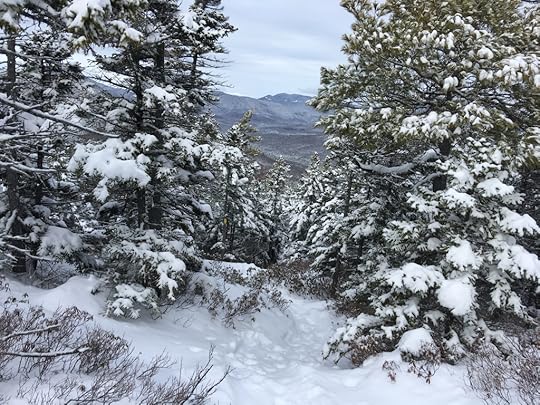
—
It is fitting that the evening after my therapy appointment is spent FaceTiming one of my kindred spirit friends. He had witnessed me sob openly just a few months prior, albeit through the phone screen. But it doesn’t diminish the vulnerability in that moment. Because of that, and from that moment, I have felt an obligation to update him on my healing, on how much better I am now than even a few months ago.
“It’s good to see you in a happier place,” he remarks, and we both talk about therapy, about the struggles life in a pandemic world creates, about the idiosyncrasies that only one who gives part of their life to the internet for consumption can understand.
And I am. The tears I give to my therapist are nothing compared to the tears I shed by myself, tears that I refused to give to those who caused them. These boxes of memories, of demons and hang ups and hurts and sorrows, might not have lids on them, but with every visit to this metaphorical closet, things really do get sorted out. And I am grateful to be the kind of person who is motivated to go through the boxes, even if I’m getting cut on what’s inside.
It is through this ruthless spring cleaning that I’m not the person that I was six years ago (goodness, she’d be intimidated by me, these days). It is because of my constant assessing of the past that I have more fight, that I catch on quicker, that I establish boundaries sooner (even if it’s still painfully after the fact). My therapist says I don’t have to return to those boxes in the closet if I don’t want to, but I do, and I will keep on returning until the shards are picked out, the items are organized, and the boxes are stacked.
And — who knows — maybe I’ll find those Christmas presents, after all.



